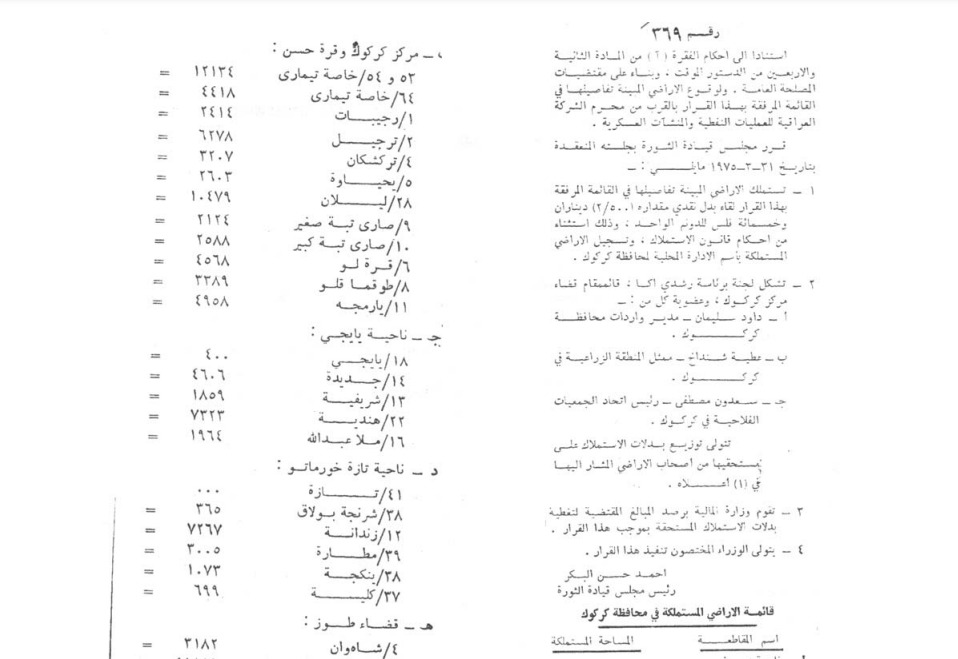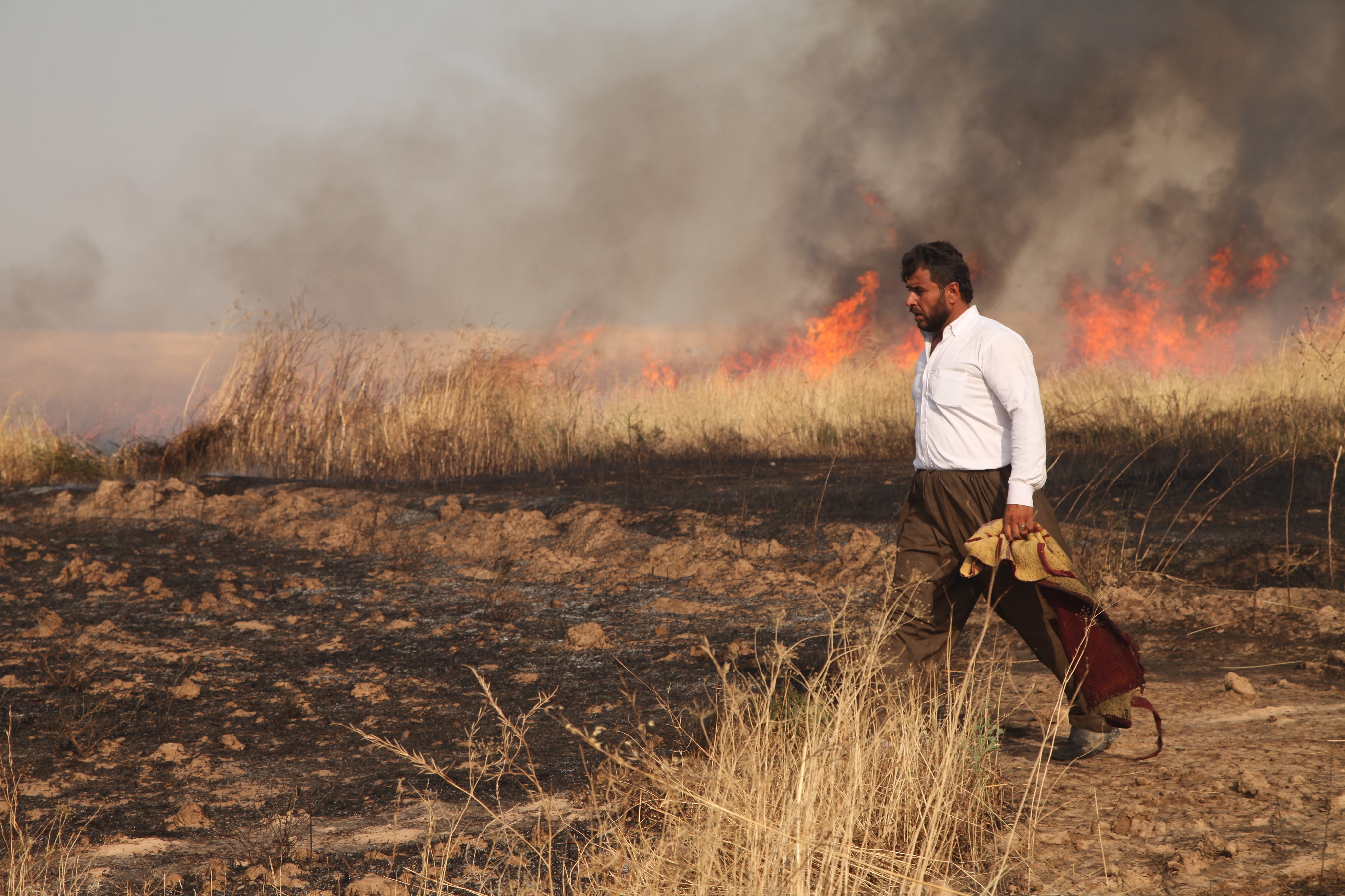The Arab parties refused to vote on the draft law to cancel the decisions of the dissolved Revolutionary Command Council of late Saddam Hussein era unless a number of their proposals were included in the draft law, leaving the draft unratified.
The draft law, which includes a number of articles related to the cancellation of the decisions of the Revolutionary Command Council issued in the 1970s, was included last Wednesday, May 22, on the parliament’s agenda yet was not endorsed.
By approving the draft law, the lands seized during the rule of the Baath regime headed by Saddam Hussein in Kirkuk and other areas will be returned to their original owners, especially Resolution No. 369 regarding the lands of Kirkuk and Tuz Khurmatu district of Salhaddin province.
Sabah Habib, a Kurdish lawmaker from Kirkuk Province, member of the Patriotic Union of Kurdistan (PUK) bloc, told (KirkukNow), “Some Arab blocs said during the session that the Arabs were also subjected to great injustice during the period of Baath Party rule and we offered martyrs and a portion of our lands were seized in several regions. Therefore, we have some proposals, including canceling the decisions of the Revolutionary Command Council, according to which they seized the lands of the Arab component as well.”
This proposal led to the obstruction of voting on the draft law, according to Habib, who said, “The session was postponed until the proposal could be included in the draft law, and the Legal Committee will set a new date for holding the session.”
“All members of Parliament requested to receive the Arab blocs’ proposal, and a legal committee will handle this.”
The northern oil-rich city of Kirkuk, 238 kilometers north of Baghdad, is an ethnically mixed province for 1.7 million Kurds, Sunni and Shiite Arabs, and Turkmen. It has long been at the center of disputed territories between Baghdad and Erbil.
Kirkuk is one of the main disputed areas in addition to Diyalah and Nineveh a three-stage process outlined in Article 140 of the Iraqi constitution in 2005, stipulating normalization, a population census, and a referendum on the status of the territories, was drawn to put an end to Erbil-based Kurdistan Region Government KRG and Iraqi Federal government dispute over these areas.

Wasfi Al-Asi, an Arab lawmaker from Kirkuk, said in a statement after postponing the vote on the draft law that “the draft law is unfair to the Arab component in Kirkuk as they are the only ones affected by it.”
He stressed that "the attempt to pass the draft law contradicts the facts that confirm that the owners of these properties and lands are not covered by Article 140, as they are the original residents of the city of Kirkuk, according to census records of 1957, and they have hundreds of judicial decisions that have gained a final degree of their right to these properties."
Sabah Habib said, “We believe that the Arabs also have the right to have demands, but as Kurds, if the draft law is not passed, we will not vote on the draft general budget law,” noting that “Parliament has become the reason for the delay in resolving land ownership as a result of the disruption of the sessions.”
This comes at a time when the head of the General Authority for Kurdistan Regions outside the administration of the Iraqi Kurdistan Region IKR, Fahmi Burhan, stressed on many occasions that during their visits to Baghdad to discuss the issue of disputed territories, especially agricultural lands, they were told that the seized lands “belong to the Kurds and must be returned to them, but in reality I see that these are just pleasantries. The obstacles that exist are political and need political solutions.”
In the seventies of the last century, according to a decision of the Supreme Revolutionary Command Council and the Northern Affairs Committee during the rule of the Baath Party, most of the agricultural lands belonging to Kurdish and Turkmen farmers were distributed in several regions of Kirkuk with agricultural contracts to Arab farmers who were relocated from central and southern Iraq and settled in Kirkuk, as part of the Arabization process and deportation of Kurdish and Turkmen families.
Ownership of agricultural lands is one of the complicated issues in the northern, oil-rich, multiethnic province of Kirkuk and other disputed territories that have remained suspended for 20 years and between Kurdish, Turkmen and Arab farmers.
The Kurdish and Turkmen farmers claim they are the real owners of the lands confiscated by Saddam regime and given per contracts to Arab settlers.





